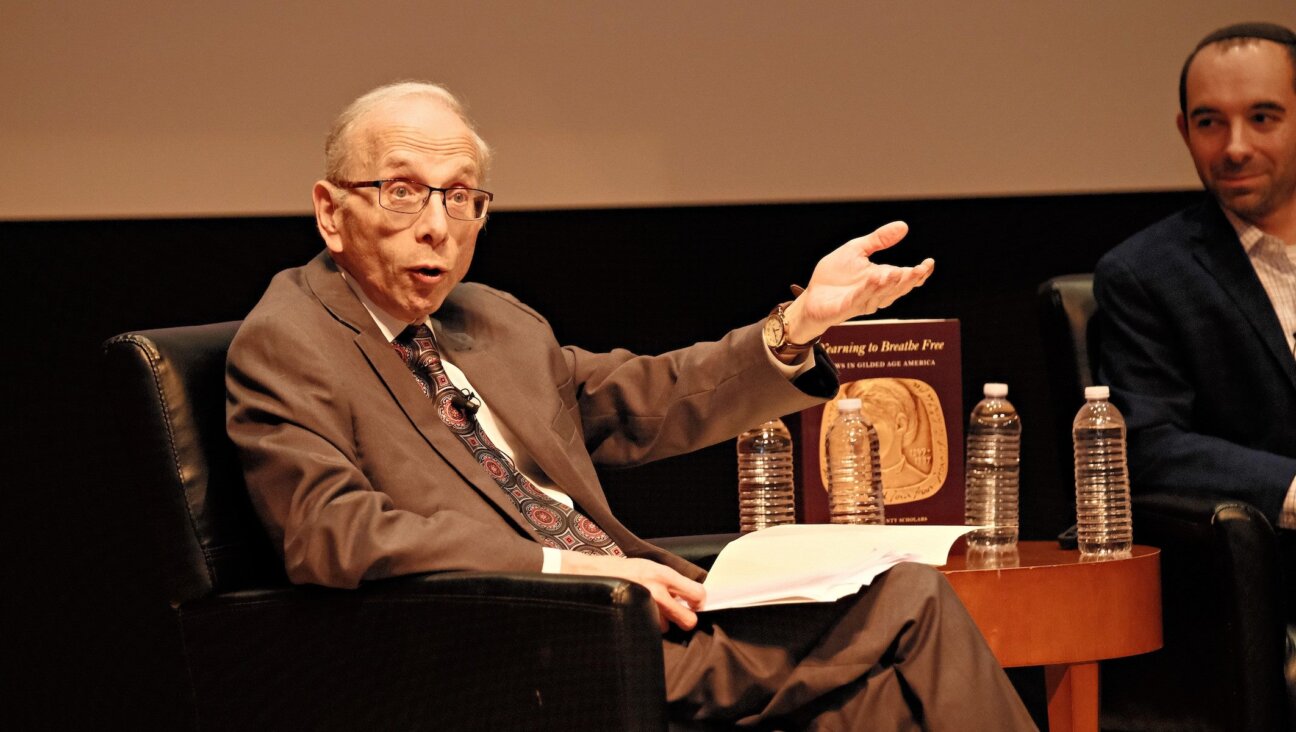Bringing Justice Back to Tu B’Shvat

Image by Photo By Noah Farkas
In cities across the globe this month, Jewish communities are celebrating Tu B’Shvat. One of the types of celebrations is the mystical Tu B’Shvat seder. It started in the 16th century, by Rabbi Yitzchak Luria, who took the New Year of the Trees and gave it an other-worldly spin. Through the ritual of the Tu B’Shvat seder, the Jew celebrates the fecundity and blooming of the trees as a totem for spiritual perfection. Basically, the seder is a ritual that leads the Jew through four divine worlds culminating in the world of emanation—the world of the spirit which is perfect and holy. Here we eat fruits that are fleshy and without pits, teaching that in the world of emanation, all is perfect and sweet. It’s lovely and spiritual, and totally backwards. Let me explain.
The problem with the totemic thinking of Tu B’Shvat is that it ignores the underlying structure of the human-eco balance on which this day relies. Luria’s seder is a ritual journey that elevates the soul up and away from the physical to the metaphysical, from the body to the spirit, from this world to the world beyond. Notice, the subtext: the world we live in is nothing but a beginning—a way station to the real world of God’s essence felt in the undiminished mystical union. Understood this way, the purpose of the seder is to elevate ourselves away from the physical, turning our backs on this world, and on our responsibility for it, for a chance at a mystical union with God.
This reminds me of a teaching of my friend and teacher Rabbi Harold Schulweis, who once said that the risk of ritual and prayer is that it could lead to the dissolution of human responsibility. By saying “Praised are You” without thinking “through me, your witness” we can become bystanders to the arc of history instead of participants in it. The mystical meaning of Tu B’Shvat seems to do precisely that.
Instead, we should recover the original understanding of Tu B’Shvat. NOT as a holiday or a festival, but as a date to remind us of our social duty. In the Mishnah, where Tu B’Shvat is found, the purpose of the date is to make an accounting of our produce that is taxed and given to the community and especially to the disenfranchised. It’s based from a single line of Torah:
At the end of three years you shall bring forth all the tithe of your produce in that year, and shall lay it up inside your gates; And the Levite, because he has no part nor inheritance with you, and the stranger, and the orphan, and the widow, who are inside your gates, shall come, and shall eat and be satisfied; that the Lord your God may bless you in all the work of your hand which you do. (Deuteronomy 14:28)
The Levite, the stranger, the orphan, and the widow are the archetypes of human beings that live at the margin of society. The 15th of Shevat is that date which gives an objective foundation from which the community tithes fruit-bearing trees. Our food is freighted with values both real and symbolic, it triggers memories. In a word it has depth. But it also has power. By issuing a “tax” the Torah is showing us that our community is bound through responsibility for each other through our most common commodity— our food. Thus, on Tu B’Shvat if we lose ourselves in the headiness of mysticism we miss the day’s original intention that deals with the indefeasible balancing of needs and interests in the community between those who have and those who do not. Tu B’Shvat should force us to confront the world we live in, rather than turn our backs on it.
Let’s bring back justice to Tu B’Shvat praxis. If you celebrate with a seder, do it backwards. Begin in the world of spirit, and end in a world of action. Let the ritual bring you into this world and inspire you to rise from the seder table to work with the widows, orphans, and strangers to build a better world. As Jews, our songs and praises find their meaning when we act on their messages to address the broader challenges facing our community. This year, we should mark this day with its original intention. More than planting trees or attending a seder, we must commit ourselves to a day of service and advocacy for the food policies that affect everyone especially the most vulnerable. And if we do, the Torah teaches that God will bless us, instead of the other way around.
Rabbi Noah Zvi Farkas of Valley Beth Shalom in Encino is the founder of Netiya, an L.A.-based network of Jewish organizations focused on food education for environmental and social justice. He can be reached at [email protected], and @RabbiNoah on Twitter.























